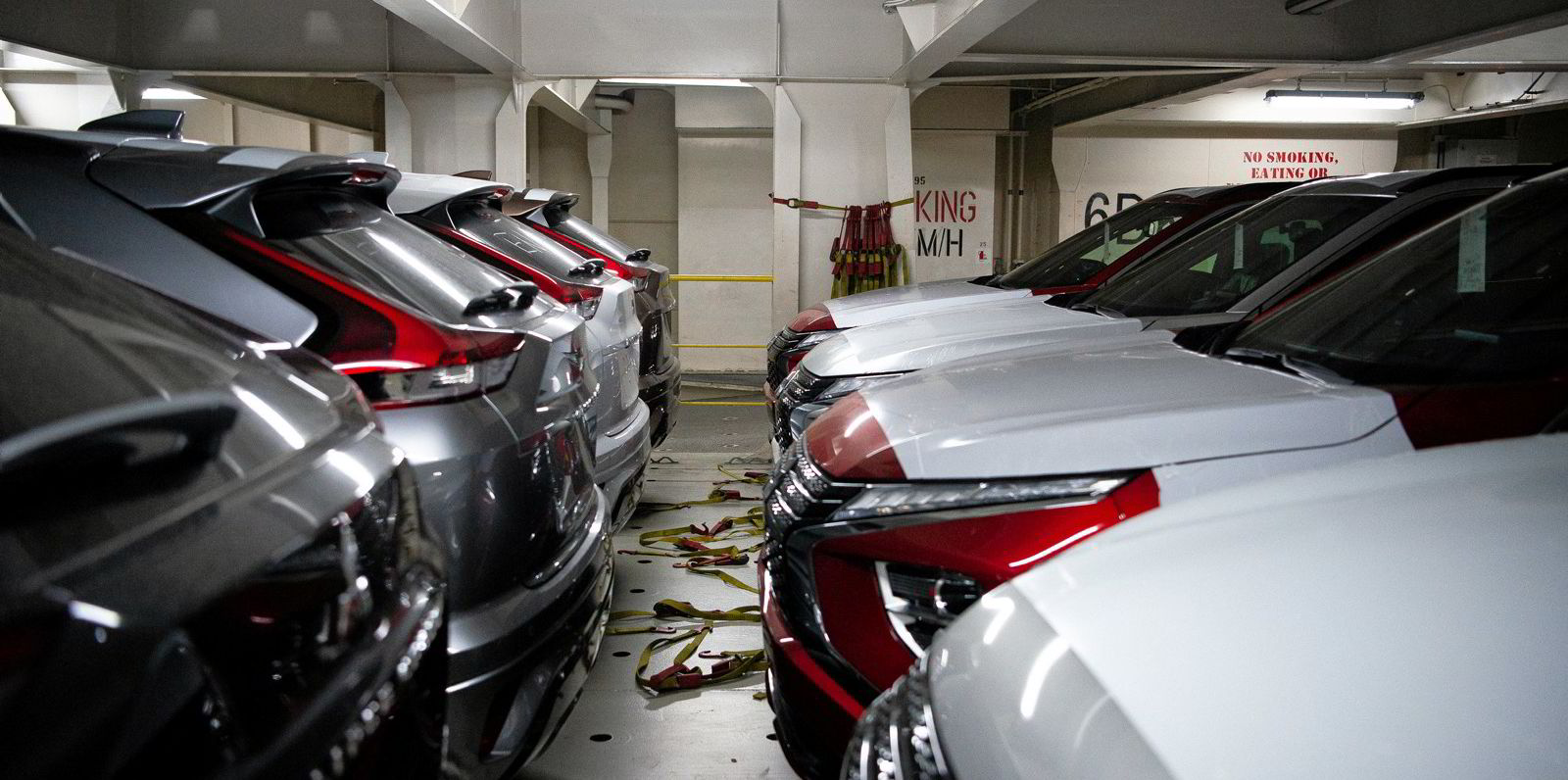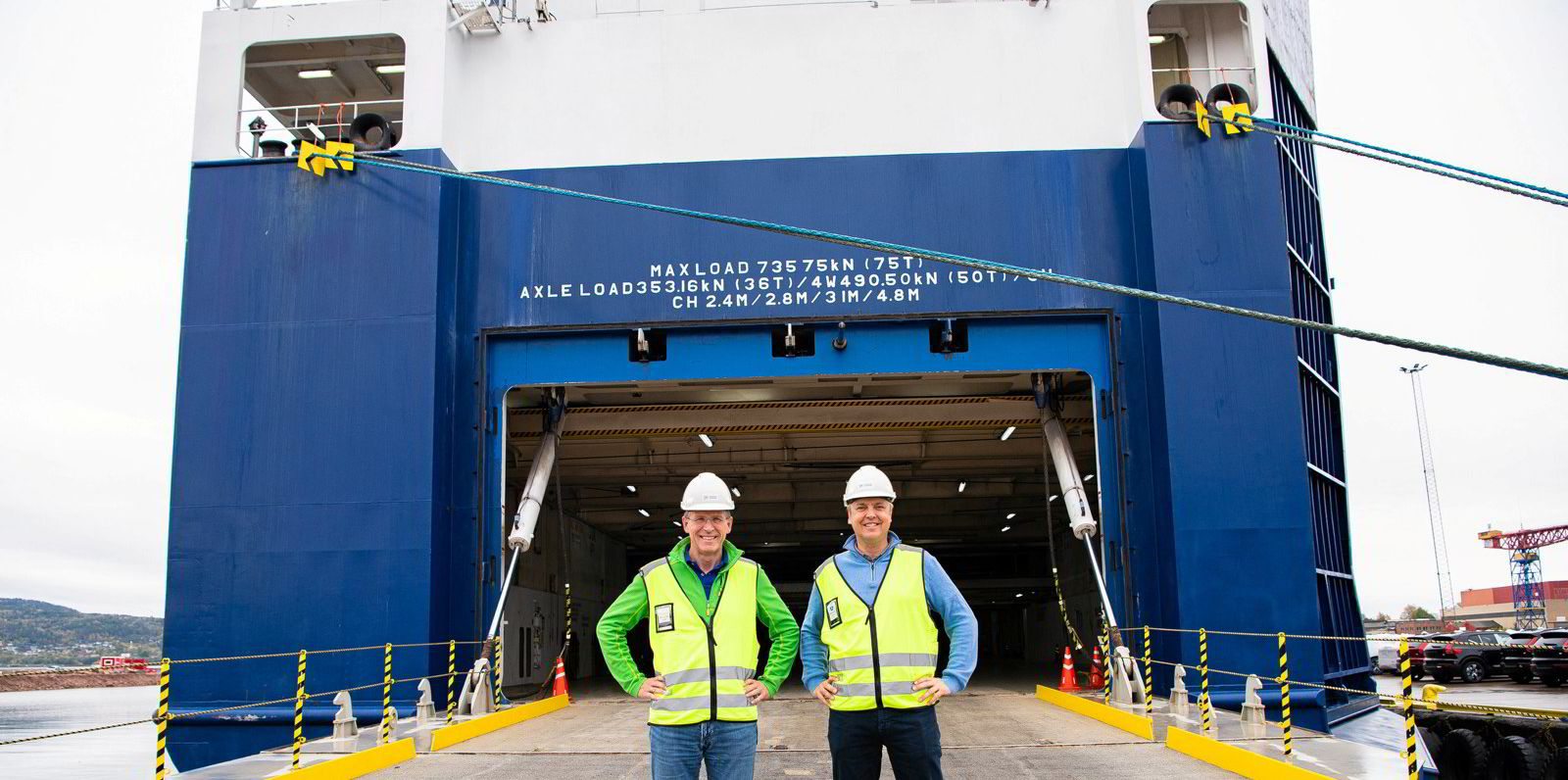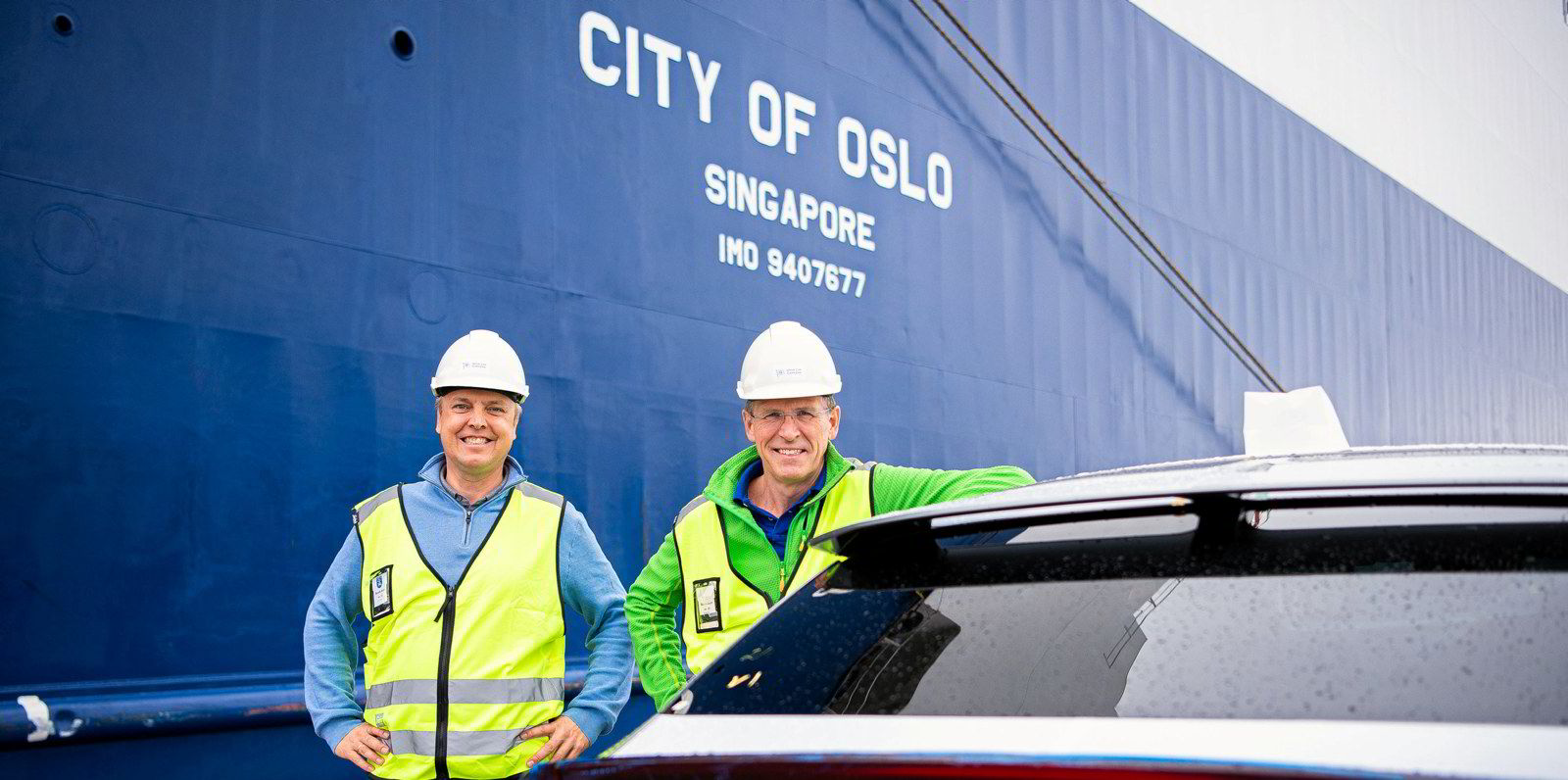The car carrier sector is in for a continued surge in rates because of historically favourable drivers both on the demand and supply side — or such is tonnage supplier Gram Car Carriers' pitch as it readies an Oslo listing.
Chief executive Georg Whist is touting enhanced demand for Gram's 16-ship fleet in connection with the transition into personal electrical vehicles, as well as constricted ship supply. A recent wave of scrapping, a manageable orderbook and long newbuilding lead times all put a tonnage supplier in an optimistic position.
Charter renewals also favour Gram. Four of its ships come up for renewal by the end of 2021, 50% of the fleet in 2022, and a full 80% in 2023. None of Gram's charterers are dominant. Four ships on charter to Hyundai Glovis makes it the biggest customer.
As TradeWinds has reported, Gram is planning a $100m initial public offering of Gram Car Carriers on Oslo's Euronext exchange, with Whist at the helm and former Hoegh Car Carriers chief executive Ivar Myklebust as board chairman.
Analysts at Gram's advisors, Clarksons and Fearnley Securities, largely sign on to Whist's reading of the market. But Clarksons' Erik Tonne and Fearnley Securities' Peder Nicolai Jarlsby have short-term reservations on the demand side, particularly as a result of the current semiconductor shortage and the resulting bottleneck for automobile exports.
Gram's ships carry roughly 80% new cars and trucks, 10% used vehicles and 10% "high and heavy" cargoes such as equipment for construction, agriculture and mining, so the personal vehicle demand picture is crucial.
Whist agrees with the analysts' picture of a diminished fleet that will be struggling to catch up with inevitably increasing automobile demand.
"It will take four or five years to get a delivery," he told TradeWinds. "We're not going to get a [supply side] shock in the next five years."
Growth in the pure car/truck carrier (PCTC) segment, like other shipping segments, has been restrained by reluctance over long-term emissions regulations. In addition, car carriers benefit from substantial shrinkage of the existing fleet through panic scrapping, especially during the first year of the Covid-19 crisis.

"People scrapped about 25 ships in a year, which everybody regrets now, so there has been negative fleet growth," Whist said.
Some of the demolition during the pandemic was casualty-related. Ocean Yield's 4,900-ceu Hoegh Xiamen (built 2010) was scrapped in July 2020 after a fire and Shoei Kisen's 5,600-ceu Sincerity Ace (built 2009) was sold for demolition in June of this year despite efforts to remediate the effects of a 2019 fire.
But all demolitions count. With a live fleet of only 641 PCTCs of 3,000 ceu or larger, a total of 26 ships were scrapped during 2020 and 2021, according to VesselsValue, which counts up to 62 ships now on order, almost all of 6,500 ceu or larger. But that long-term tally includes some option vessels and is likely to see slippage.
Net fleet growth between 2019 and 2023 is zero, reckons Clarksons' Tonne, although in recent months the orderbook has grown from 3% of the fleet on the water to 7%.
On the demand side, Whist cites the "post-Covid frenzy of consumer buying" as a continuing driver.
Clarksons backs that up in a September 2021 comment on the market.
"Massive pent-up demand and low car inventories will keep the PCTC fleet utilisation elevated due to limited new supply and ongoing fleet inefficiencies that are expected to last into the next year," the shipbroker noted in a report.
But it also warned of the short-term constriction on shipments from new Covid-19 outbreaks in Asia and from carmakers' struggle to source microchips.
In the longer term, Whist expects two factors to favour Gram as a tonnage supplier, both related to battery-powered electric vehicles (EVs).
First, the experience of early adopters like Norway and the Netherlands with the EV transition promises an accelerated replacement rate — a factor that should boost volumes for as long as the transition takes.

Second, the EV transition is creating new trading patterns.
For example, global carmakers are exporting more cars from China, but also from places like Mexico. At the same time, a host of names better known in China than abroad — Geely, Chery, Great Wall and BDY — are increasing their export business.




